Enhancing observational skills Normal Science Worksheets
8 filtered results
-
From - To
Enhancing observational skills is crucial for young learners in understanding their environment. Our "Normal Science Worksheets" provide engaging activities designed to sharpen these vital skills while fostering a love for exploration. Through hands-on tasks, students will learn to observe, describe, and analyze various phenomena, enhancing their critical thinking and reasoning abilities. Each worksheet is thoughtfully crafted to stimulate curiosity and promote teamwork, allowing children to share findings and insights. Perfect for classroom or home use, these resources align with educational standards to ensure a comprehensive learning experience. Equip your students with the tools for scientific inquiry and observation today!
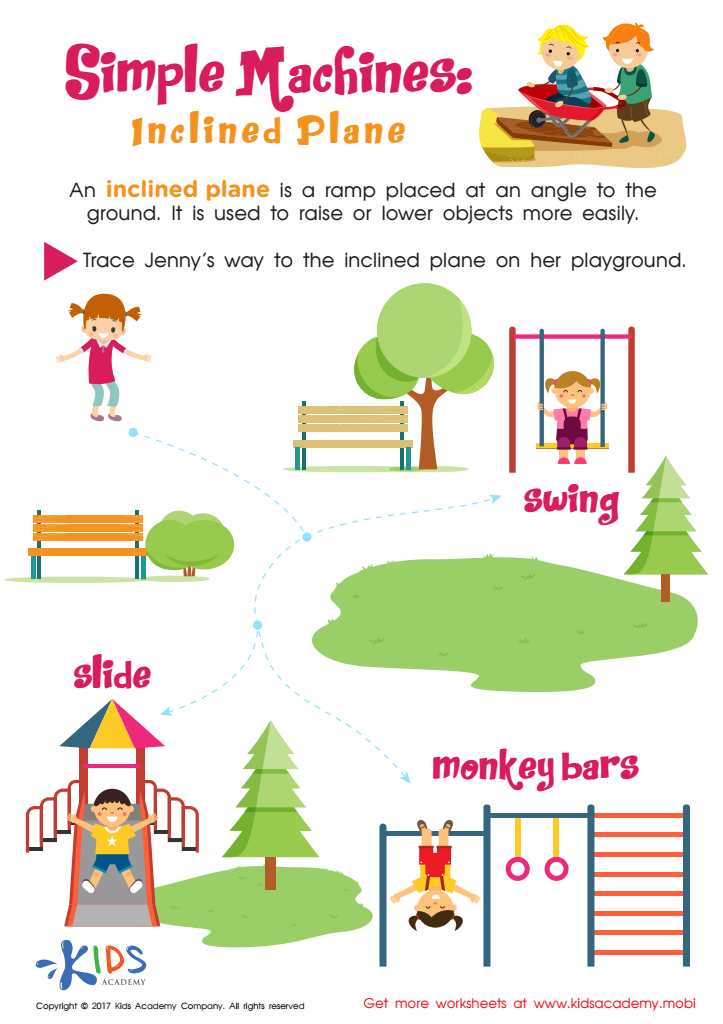

Simple Machines Inclined Plane Worksheet
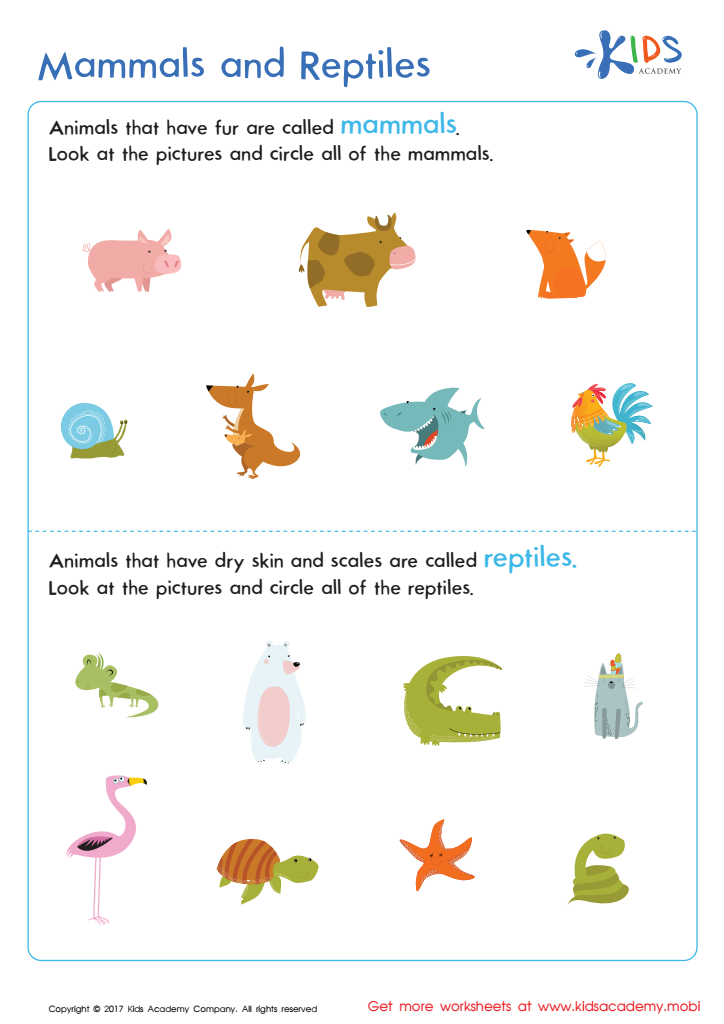

Mammals and Reptiles Worksheet
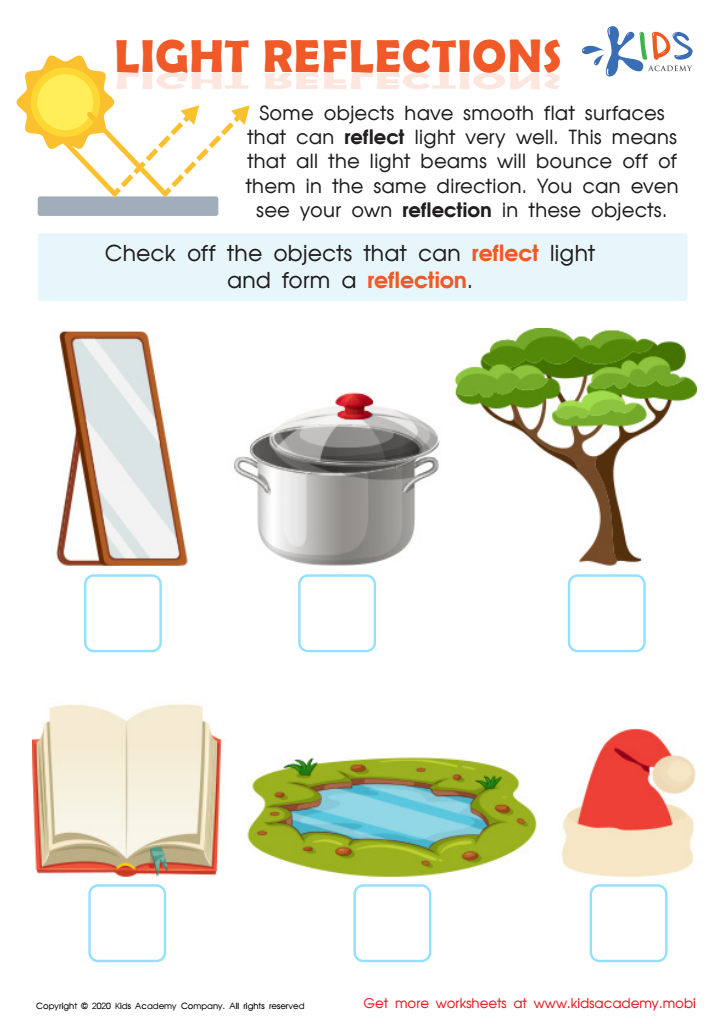

Light Reflections Worksheet
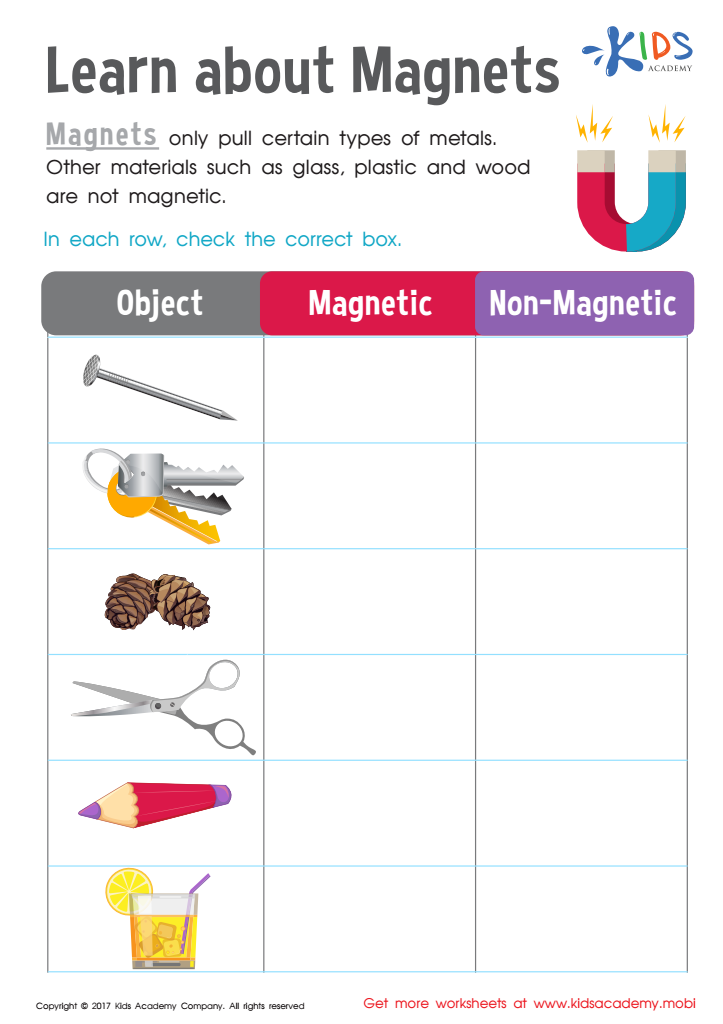

Magnetic Or Not Worksheet
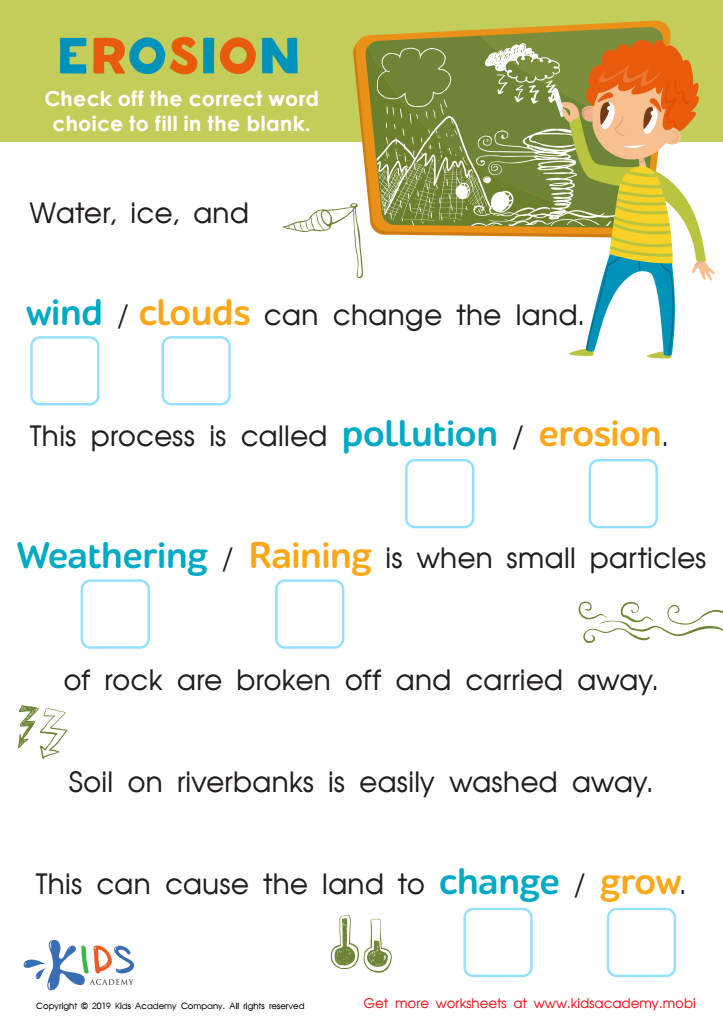

Erosion Worksheet
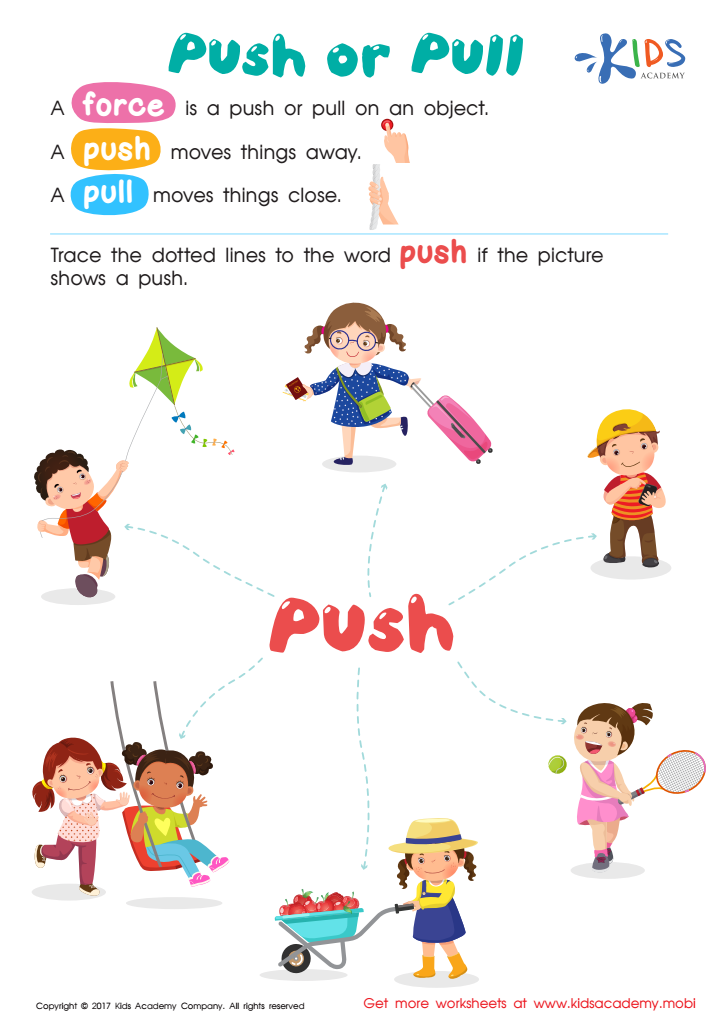

Push or Pull Worksheet
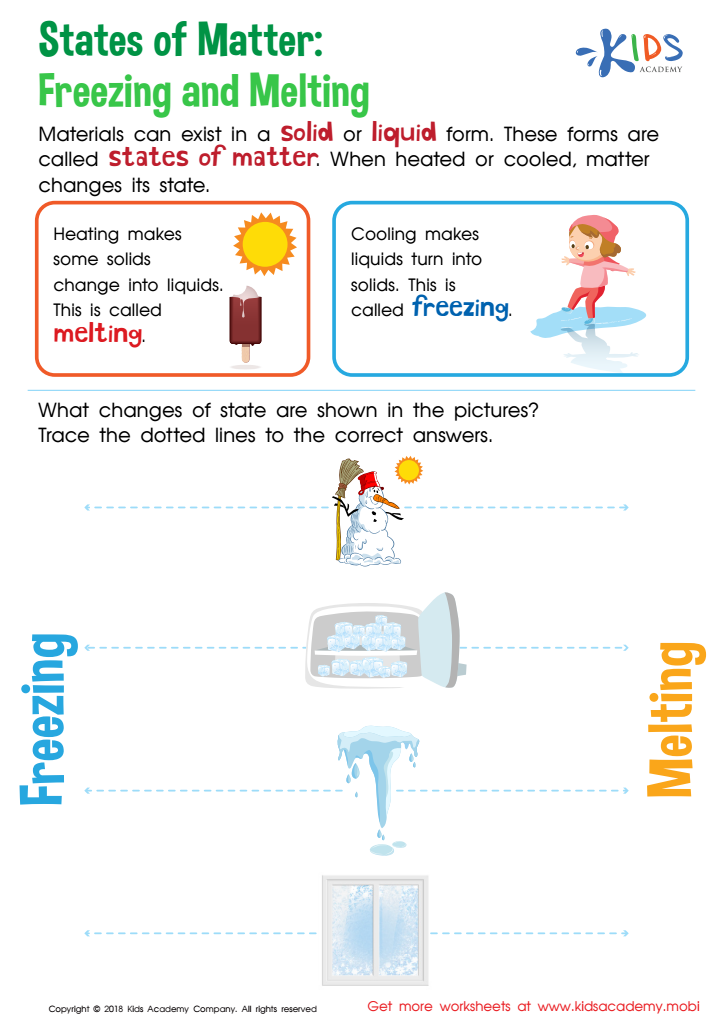

States of Matter: Freezing and Melting Worksheet
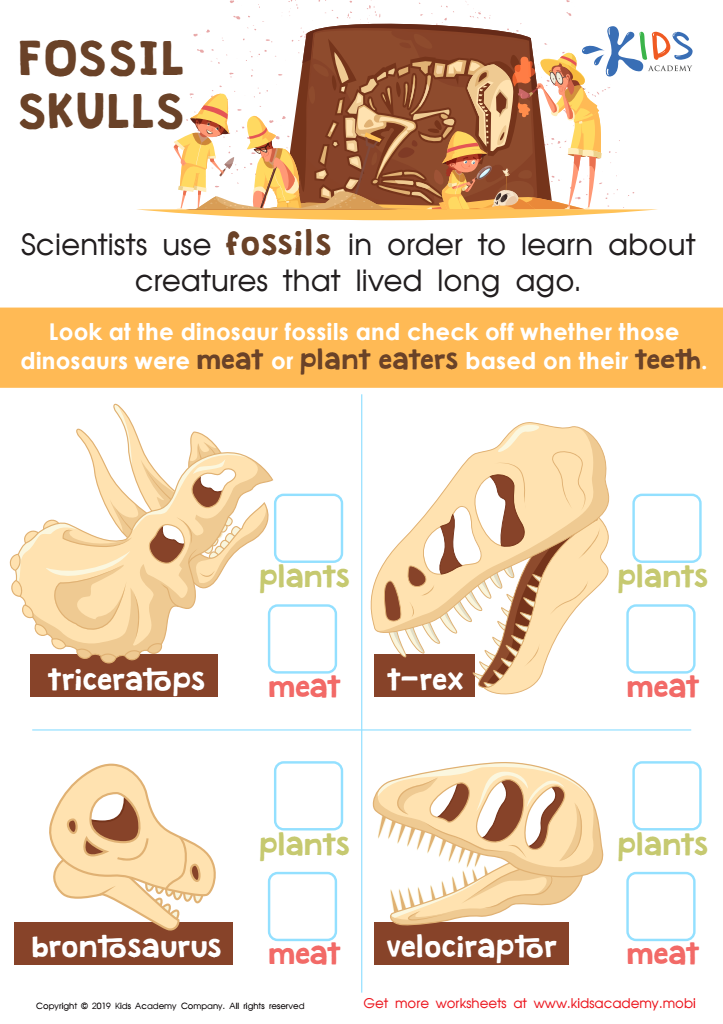

Fossil Skulls Worksheet
Enhancing observational skills in early childhood education, especially through "Normal Science," is crucial for both parents and teachers for several reasons. First, observational skills form the foundation of scientific inquiry. Children learn to notice details, ask questions, and seek evidence, fostering critical thinking. This not only promotes curiosity about the natural world but also instills a sense of wonder and exploration, essential for lifelong learning.
Secondly, enhancing observation allows children to gather information through their senses, which is vital for their cognitive development. It helps them connect theoretical knowledge with real-world experiences, ensuring deeper comprehension of concepts.
Moreover, improved observational skills can lead to better communication and collaboration. Children learn to articulate their findings and engage in discussions, vital relationships that pave the way for teamwork in future educational settings.
Additionally, parents and teachers who prioritize these skills can customize support based on children's unique learning styles, thereby fostering inclusive and adaptable learning environments. In essence, by nurturing observational skills through Normal Science, parents and teachers equip children with essential tools for problem-solving, innovation, and a deeper appreciation of science and the world around them. This ultimately contributes to well-rounded, inquisitive individuals ready to tackle future challenges.
 Assign to My Students
Assign to My Students














